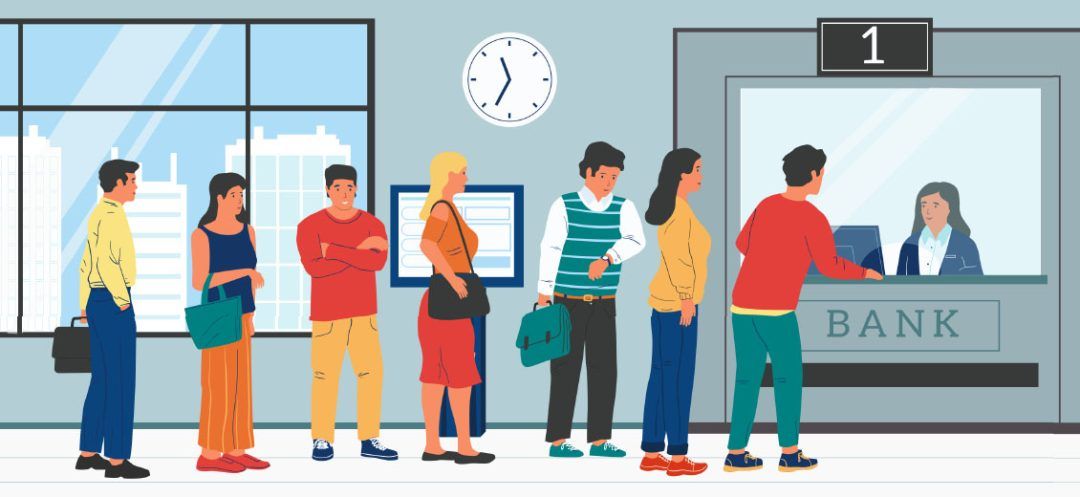
Few bankers get the chance to speak freely in the media, as this is frowned upon. They're seldom invited to debates, and if they are, it's only to be bombarded with a well-prepared barrage of acidic slurs.
In fact, we have been hearing the same tirades for the past five years, with each critic thinking they've made a groundbreaking revelation to hit them with. And when bankers try to reply, they're immediately drowned out by a sea of earplugs that spreads throughout the audience and blocks whatever they are saying.
To address this media gap, we deemed it wise to compile various scattered viewpoints expressed here and there. We also relied on the rationality of this industry to present some of these bankers’ talks, even if they might not reflect everyone's opinion. In fact, this doesn't commit anyone, and the responsibility lies solely with the author of this text.
- Bankers are wary of parting with their institutions, which may seem quite obvious. But it’s not really the case. Economically, some might actually benefit from getting rid of what has become a burden that has lost most of its market value.
- They truly want to find a way to guarantee the return of deposits... although the term "return" is inaccurate. No bank in any country can fully return all deposits. Instead, it would be about making a certain amount of deposits available based on customer needs, as was the case before 2019. On this note, it is crucial for populist politicians to curb their flow of nonsensical rhetoric.
- Access to these deposits is essential to gradually restore trust in the banking system.
- They are not asking to sell off state assets at a loss to meet their obligations, but rather to better manage these assets to generate capital gains. This would be one way to properly fund a "deposit recovery fund."
- They are not against an agreement with the International Monetary Fund (IMF) per se, but rather against its position that calls for the cancellation of bank deposits with the Lebanese Central Bank (BDL).
- They are not opposed to the idea of an audit of their accounts, as a prerequisite to "restructuring" on a case-by-case basis. However, they insist on clarifying the criteria for calculating assets and liabilities: Will their own deposits at the BDL and state debts be perceived as assets?
- They want to resume their operations and grant loans. However, for this to happen, laws need to change, especially to enforce loan repayment in the same currency.
- They are not against bail-ins (conversion of a part of customer deposits into bank shares), provided they occur prior to capital increases, ensuring new investors'contributions are not used to cover previous losses.
- They want to put an end to abusive actions by magistrates, such as asset seizures and travel bans… unless there is clear evidence of wrongdoing. Meanwhile, heists and threats against bankers' families go unpunished.
- They want to end the confusion between a bank as an entity and its shareholders. This is a major legal principle of the institution called a “joint-stock company."
- They are willing to personally contribute financially as part of a fair plan to share responsibilities and burdens.
- They are willing to cooperate with the state, if needed, to uncover illegal deposits, handle various types of deposits separately, reclaim excessive interest and penalize those who have settled their debts at a lower cost.
- They want the state to stop being in denial and acknowledge its debts, including its legal obligation to fund the BDL, which must also recognize its own obligations.
- They want to participate in meetings where rescue plans are devised, especially since these plans deeply affect the core of the banking sector. The banking sector often learns of covert decisions through the press, sometimes unwittingly signing its own demise.
- They seek acknowledgment that the crisis in Lebanon is a systemic one. This term is often debated – what does it mean exactly? It means that the crisis doesn’t just affect a few poorly managed banks, but the entire sector. And it's not only the banking sector that went astray, but also the BDL, the government and the entire economy that faced bankruptcy.
Once these bankers' talks are posted online, some will support them, others will oppose them, each with their own set of – more or less – logical arguments. But mostly, we'll end up with nothing more than an overflow of these continuous trivialities that have echoed for years. And it is hopeless: Trying to convince a stubborn person is like trying to glue a broken pot back together; it always ends up leaking.
nicolas.sbeih@icibeyrouth.com
Read more




Comments